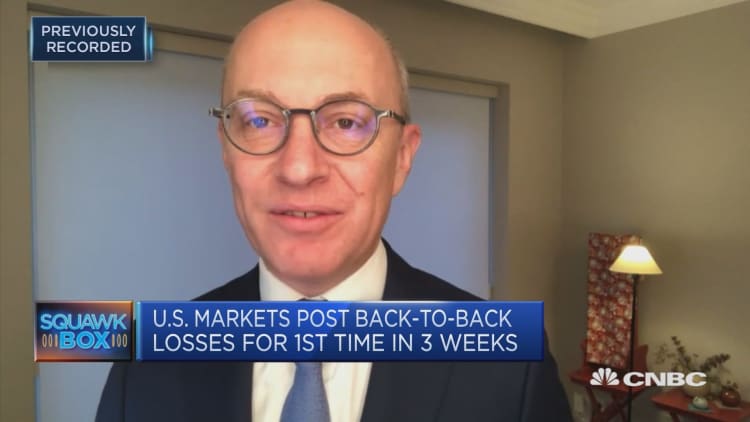The European fund industry notched up net inflows of 297.1 billion euros ($347.6 billion) for the first nine months of 2020, according to a new report from Refinitiv Lipper, despite the coronavirus pandemic creating a "tough" environment for the industry.
Money market funds — which usually invest in low-risk, liquid assets like short-term bonds — were the best-sellers over the year to date, with inflows of 211.3 billion euros, according to Refinitiv's European Fund Industry Review. These types of funds yield some income, but are mainly used to park cash in times of high volatility.
Meanwhile, funds focused on global equities were the most popular among long-term investors, with the sector seeing inflows of 62.8 billion euros.
However, the data and research provider found that total assets under management across the region's fund industry slipped from 12.3 trillion euros in Dec. 2019 to 12 trillion euros in Sept. 2020, which it attributed in large part to the performance of underlying markets, which saw a 531 billion euro decline.
It comes after a volatile year-to-date for markets. After tanking in March when the full impact of the coronavirus started to be realized around the world, stocks have experienced a broad bullish period over recent months as investors bet on stimulus from governments and central banks, and the prospect of a coronavirus vaccine.
"The coronavirus pandemic hit the European fund industry with declining markets and estimated net outflows of €125.9 bn in the first quarter of 2020," Detlef Glow, head of Lipper EMEA research at Refinitiv, said in the report.
"This trend reversed over the course of the second quarter as central banks and governments around the globe started quantitative easing programs and economic relief packages to cushion the economic drawdowns caused by the spread of the coronavirus and the lockdowns of economies around the globe."
Glow went on to explain that the relative normalization of markets since March's crash has seen investors return to mutual funds and ETFs, and dragged net inflows into positive territory across the second and third quarters.
But he added: "Taking all of this into account, 2020 was — despite the inflows — a tough period for the European fund industry."

The report identified BlackRock as the best-selling fund promotor over the period, with net sales of 68.3 billion euros, followed by JPMorgan at 56.9 billion euros and Goldman Sachs at 23.3 billion euros.
ETFs (exchange-traded funds) are collections of securities that track an underlying index, while mutual funds are actively managed and buy or sell assets strategically in a bid to beat the market and deliver profit to investors.
ETFs have enjoyed inflows of 48.5 billion euros so far in 2020, according to the report, and Glow highlighted that their popularity has been growing across all types of investors.
"Given the general market environment, it was somewhat surprising to see a slight increase in (ETF) assets under management from €870.0 bn at the end of December 2019 to €871.0 bn at the end of Q3 2020 despite a negative impact from the underlying markets (-€44.8 bn)," Glow said.



